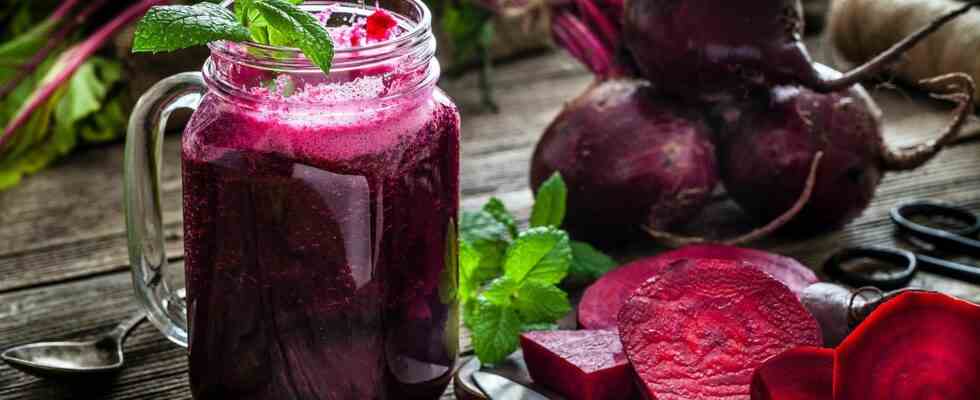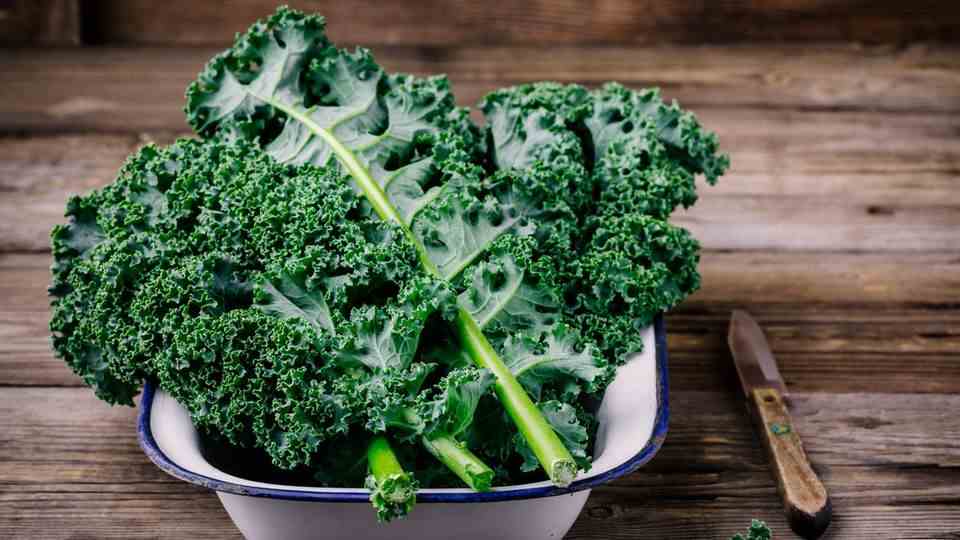study
Beetroot juice may help people with coronary artery disease
Researchers have found that a glass of beetroot juice a day could have a positive impact on the health of people with coronary artery disease.
© fcafotodigital / Getty Images
A daily glass of beetroot juice could have a positive impact on the health of people with coronary artery disease and reduce the risk of heart attacks.
If the blood vessels that supply the heart become calcified, they become increasingly clogged over time. This is coronary artery disease. According to the German Heart Foundation, around six million people are affected by the disease in Germany alone. A recent study by Queen Mary University of London has now shown that a daily glass of beetroot juice could reduce inflammation in the body of people with coronary artery disease.
“Inflammation is vital to protect the body from injury and infection. However, in people with coronary artery disease, prolonged inflammation can worsen the hardening of the arteries and increase the risk of a heart attack,” explains Dr. Asad Shabbir who contributed to the study. Nitric oxide is produced by the body and plays an important role in regulating blood pressure and has an anti-inflammatory effect. People with cardiovascular disease have lower levels of nitric oxide in their blood because the enzyme that produces it is less active in them.
Beetroot juice helps with coronary artery disease
Inorganic nitrate in beetroot juice has an anti-inflammatory effect, researchers recently reported at the British Cardiovascular Society conference. The inorganic nitrate has an effect on the nitric oxide level – it is increased and inflammation is inhibited, as the scientists show.
“Our research suggests that a daily glass of beetroot juice is a way to incorporate inorganic nitrate into the diet to disrupt harmful inflammation,” summarizes Asad Shabbir. In the study, the researchers examined 114 healthy subjects. A typhoid vaccine triggered a temporary inflammation in the body in 78 participants. 36 subjects received a cream that triggered skin inflammation. Half of the study participants received 140 milliliters of beetroot juice with a high nitrate content and the other half beetroot juice with the nitrate filtered out.
Further clinical studies needed
Subjects who received the typhoid vaccine and were given the high-nitrate juice had significantly higher levels of nitric oxide in their blood, urine and saliva than the group given the nitrate-free juice. Likewise, the nitrate-rich juice caused the endothelial cells that line the inside of blood vessels to recover faster. They are important for blood vessel function, but their normal function is lost when they become inflamed. The rash also healed much faster.
The study had only a few participants and its informative value is therefore limited. In addition, the scientists carried out the study with healthy subjects and not with people who are affected by coronary heart disease. Clinical studies with subjects who have coronary heart disease should now clarify whether a nitrate-rich diet can demonstrably reduce the risk of heart attack.
Sources:Communication British Heart Foundation, German Heart Foundation



